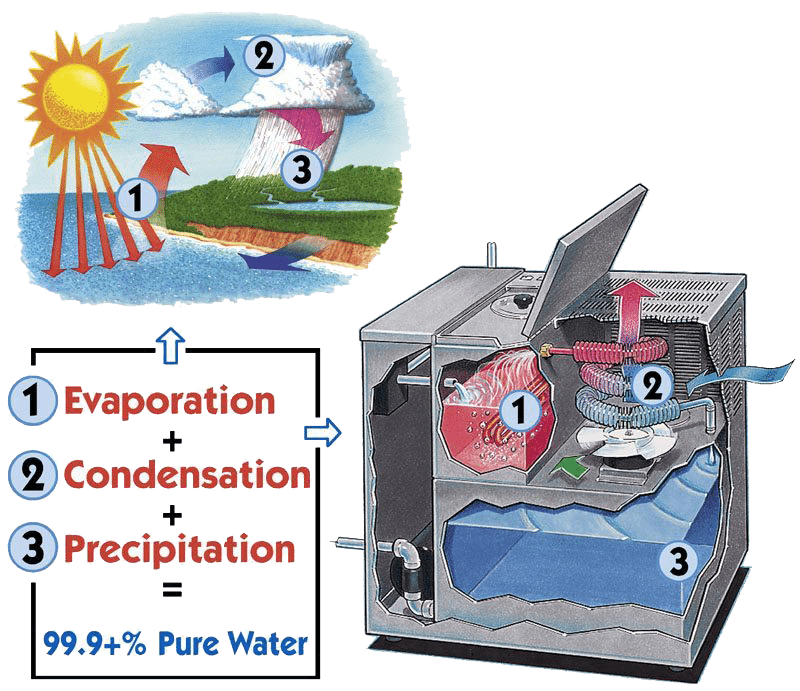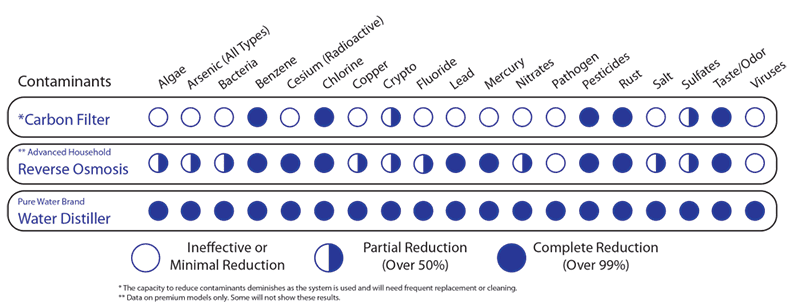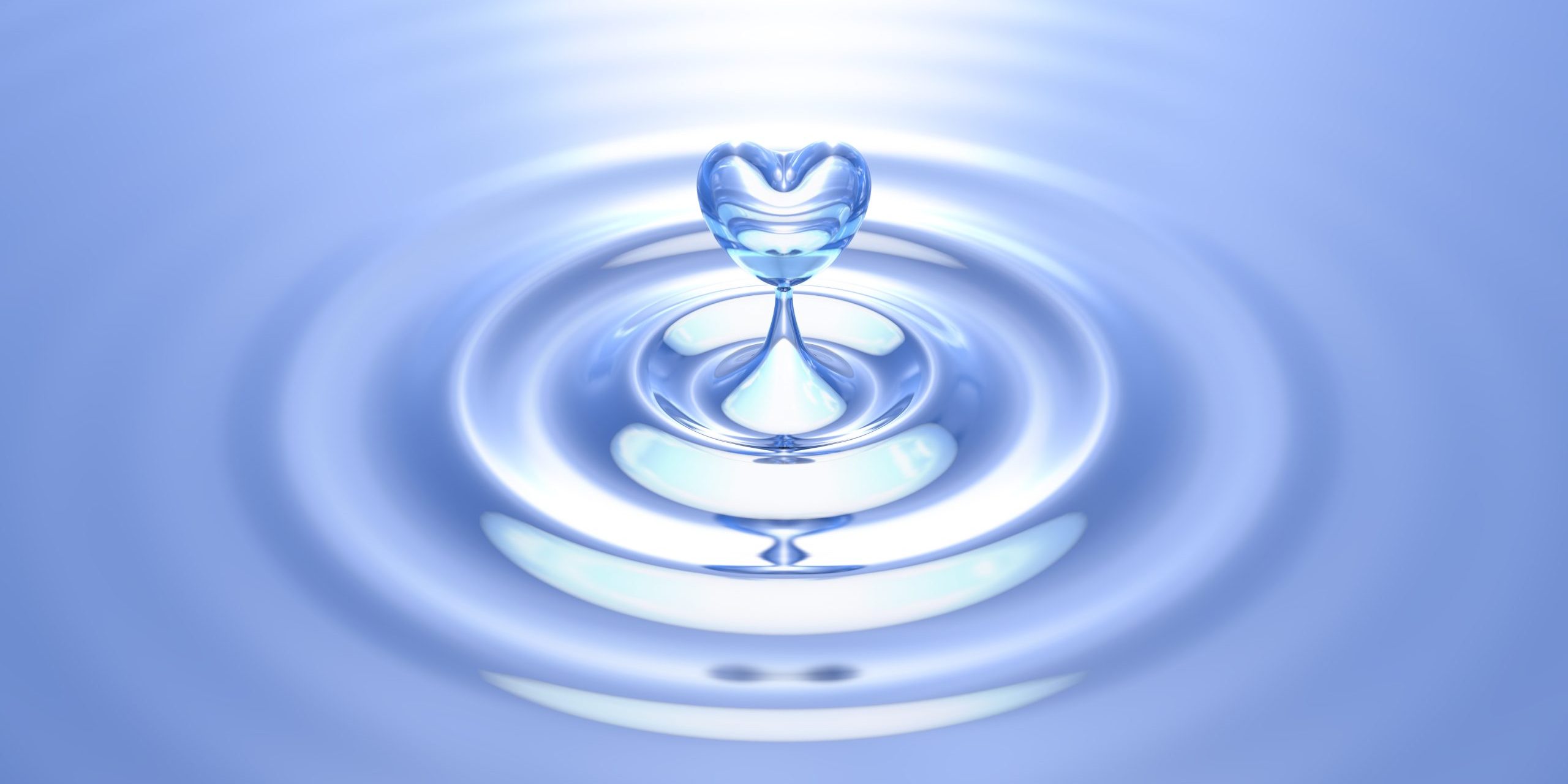Is Distilled Water Safe to Drink?
Some ask if distilled water is safe to drink and the answer is yes, distilled water is the safest water to drink! Water is essential to life, and our water quality can significantly impact our health. The distillation process is natural, allowing for contaminants to be left behind while clean steam is captured for drinking purposes. Distillation mirrors the hydrologic cycle and is Earth’s most natural drinking water.

What is Distilled Water?
Distilled water is purified water that has undergone the distillation process. Distillation involves boiling the water to produce steam, which is then condensed back into a liquid form. This process removes impurities, including minerals, bacteria, and other contaminants, leaving behind pure H2O. Because of this thorough purification process, distilled water is often used in laboratories, medical facilities, and industrial applications where high purity is required.
What is the pH of Distilled Water?
The pH of water measures its acidity or alkalinity on a scale from 0 to 14, with 7 being neutral. Distilled water, when freshly distilled, has a neutral pH of 7. However, distilled water can react with carbon dioxide in the air. When exposed to air, it absorbs CO2, forming a weak carbonic acid, which can lower the pH. Despite this slight acidity, the pH of distilled water is not a cause for concern regarding its safety for consumption.
Why Do People Think It’s Not Safe to Drink Distilled Water?
There are several reasons why some people believe distilled water is not safe to drink:
- Lack of Minerals: One of the most common concerns is that distilled water lacks essential minerals such as calcium and magnesium. Critics argue that drinking mineral-free water can lead to mineral deficiencies. However, the minerals in water contribute only a small fraction of the daily intake compared to food sources.
- Acidity: As mentioned, distilled water can become slightly acidic when exposed to air. Some fear that this acidity could harm the body. In reality, the body’s natural regulatory mechanisms maintain a stable pH balance.
-
Taste: Distilled water can taste different compared to tap water or what the person is used to drinking. This difference in taste is due to the absence of contaminants. Some mistake the plastic taste of the bottle that the distilled water was in as the actual taste of distilled water. Distilled water stored in a glass container is actually very refreshingly clean tasting!
Drinking Distilled Water
Distilled water is safe to drink. While it lacks the minerals found in other types of water, it is free from contaminants, making it a pure and clean option. The human body obtains the majority of essential minerals from food, so the absence of minerals in distilled water is not a significant health concern. Additionally, the slight acidity that can develop in distilled water is not harmful, as the body can easily neutralize it. Distilled water is a safe and viable drinking option.
Tap Water Quality Issues
Tap water quality varies significantly depending on the location and the source of the water. While the Environmental Protection Agency (EPA) in the United States regulates public water systems and sets standards for over 90 contaminants, issues still arise. Common tap water quality concerns include:
- Lead Contamination: Lead pipes and plumbing fixtures can leach lead into the water supply, posing serious health risks, particularly to children.
- Chlorine and Chloramine: These disinfectants are used to kill harmful bacteria, but they can react with organic matter in water to form disinfection byproducts, which may be harmful over time.
- Pesticides and Herbicides: Agricultural runoff can introduce these chemicals into the water supply, potentially affecting health.
- Microbial Contaminants: Bacteria, viruses, and parasites can contaminate water sources, leading to waterborne diseases.
- Pharmaceuticals and Personal Care Products: These substances can enter the water supply through wastewater and are not always fully removed by treatment processes.

Distillation vs RO vs Pitcher Filters for Contaminants Left Behind
Distillation
Distillation effectively removes a wide range of contaminants, including:
- Heavy metals (e.g., lead, mercury)
- Microorganisms (e.g., bacteria, viruses)
- Volatile organic compounds (VOCs)
- Inorganic compounds (e.g., nitrates, sulfates)
- Particulates and sediments
However, distillation alone may not remove some volatile organic chemicals that have boiling points close to water, which is why Pure Water brand water distillers come with a carbon post filter to remove VOCs! Read the test results from an independent 3rd party lab on how Pure Water Distillers remove contaminants.
Reverse Osmosis (RO)
Reverse osmosis (RO) is another effective water purification method. It uses a semipermeable membrane to remove the following.
- Dissolved salts and minerals
- Heavy metals
- Microorganisms
- VOCs
- Pesticides and herbicides
RO systems are efficient at removing some contaminants, but not as many as distillation. They require regular maintenance and some RO systems can waste a significant amount of water during the filtration process.
Pitcher Filters
Pitcher filters are convenient and easy to use, but their effectiveness varies depending on the filter media used. They may remove the following.
- Chlorine and chloramine
- Some heavy metals (e.g., lead, copper)
- Certain pesticides and herbicides
- Some microorganisms
However, pitcher filters generally do not remove as wide a range of contaminants as distillation or RO systems. They are best suited for improving taste and reducing common contaminants but may not be sufficient for areas with serious water quality issues.
The Gold Standard for Water Purification
Distilled water is safe to drink, despite common misconceptions about its lack of minerals. It offers a high level of purity by effectively removing a wide range of contaminants. While tap water quality can vary and present certain risks, using purification methods like distillation, reverse osmosis, or pitcher filters can help ensure safer drinking water. Water Distillation Systems such as those produced by Pure Water are the best at removing known or unknown contaminants effectively over time with little maintenance costs.
Mini Classic CT Countertop Water Distiller 120V (Currently 1-2 Week Lead Time) Made in the USA
Mega Classic Automatic Water Distiller Made in the USA (Currently 3-5 Week Lead Time)







